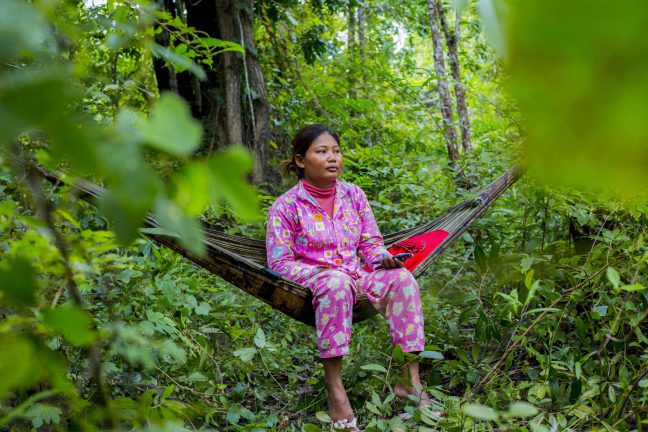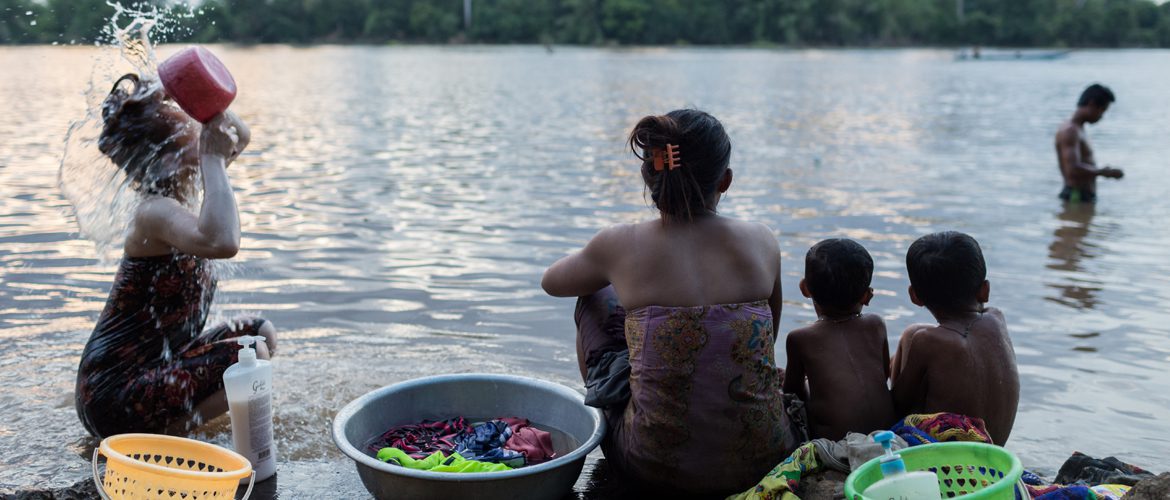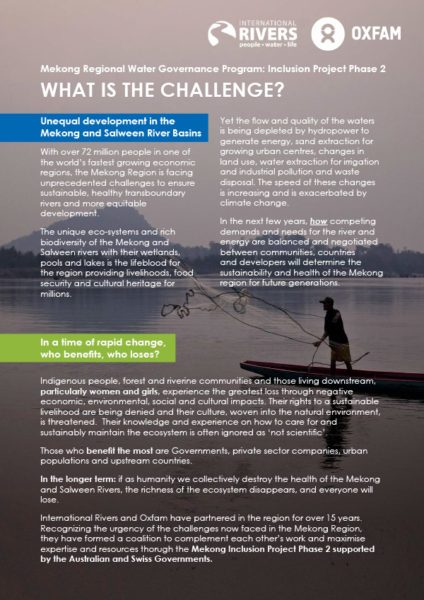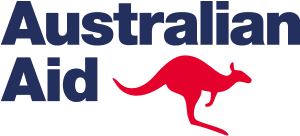OUR WORK IN CAMBODIA
Quick facts
- 16 million people
- 13.5% living on less than USD $1.90 / day
- 20.9% of women have experienced intimate partner violence
Cambodia is one of the most beautiful countries in South East Asia but also one of the poorest. More than 50% of the population is less than 25 years old — a legacy of Pol Pot’s regime. Many adults missed out on an education which has led to a lack of productive skills across the country. High unemployment means that making a living is difficult. The effects of this are more pronounced in the remote countryside, which suffers from a lack of basic infrastructure and services.
Oxfam is working in Cambodia to strengthen local civil society and communities to participate in decisions and management around water governance to ensure fair and sustainable usage. Six countries, including Cambodia, depend on the Mekong River region to provide water for agriculture and fishing, energy and supporting bio-diverse ecosystems – their fates are all connected. Oxfam has a long history of supporting rural farming and fishing communities throughout the Mekong region. The area is rich in natural resources but there are growing concerns that climate change and competing interests in water management are leading to instability and food insecurity, worsening the divide between rich and poor, and making life much harder for rural communities by putting pressure on the natural systems that underpin their livelihoods and well-being.
Key areas of work
Social Accountability and Governance
One story of change

Sopheak is a lyrical opponent of the illegal logging, land grabs, pollution, deforestation and unsustainable fishing that she sees in her community. “One of the main concerns is losing tons of fish in the river,” Sopheak says, noting that fish was more affordable and plentiful in the past. With Oxfam’s support, Sopheak teaches people in her village to protect the Mekong.
“I will keep informing them about fishery issues and how to conserve the fish for the next generation,” she says. “I will work hard to inform and persuade them to love the river and protect our resources.” Sopheak tells women they are more than nurturers in the home; they also have a responsibility to protect the Mekong.
Undeterred by the attack, Sopheak says, “No matter what happens to me, if I am still alive I will devote my life to protect the Mekong River and forests.” Oxfam’s partner, the Northeast Rural Development (NRD), is training people like Sopheak to stand up to corporations who threaten their natural resources, by demanding they be consulted about development projects that affect them. Known as the principle of Free, Prior and Informed Consent (FPIC), it is a powerful tool for communities to be heard.
“NRD empowered me and other to be leaders,” Sopheak says. “The FPIC principle helps me speak more confidently, and raise questions when talking with local authorities.”
Key projects
Mekong Inclusion
Building on the success of the Inclusion Project, funded by the Australian Government from 2014 to 2019, Inclusion Project Phase 2 started in 2020 and is part of Oxfam’s Mekong Water Governance Program. It is funded by the Australian Government and the Swiss Government, and implemented by Oxfam and International Rivers.
Through this project we continue to support local communities in the Mekong area in Laos, Cambodia, Vietnam, Myanmar and Thailand, to engage in decision making on the water resources they rely on for their livelihood and well-being. In particular, we focus on empowering women to lead, and on policy dialogue that is inclusive of local people and civil society.
Oxfam’s work across the Mekong region with farmer and fisher communities in our Mekong Water Governance Program has consistently shown that when local people are involved in decisions about the use of their land and resources there is more likelihood that development will be equitable and sustainable. Right now, many development processes are not inclusive at all.
For instance, people whose livelihoods are reliant on water resources are generally not included in decisions on water infrastructure – such as hydropower dams. At best people may be included at the last minute when they’re forced to resettle or to adapt to new situations where their land or waters have been taken away, or fundamentally changed. The Inclusion Project Phase 2 aims to achieve more informed, transparent and accountable water resource governance and renewable energy infrastructure decision making in the Mekong region.
The project is divided in three components:
- Inclusion and gender equality: to strengthen women leaders’ capacity and promote gender analysis in policies and practices.
- Civil society engagement and networking: to connect civil society organisations, help them become more inclusive of women and minorities and strengthen their capacity to engage with national and regional actors.
- Government and private sector engagement: to foster opportunities for engagement with civil society on issues related to hydropower and renewable energy




